Ramón Espejo Masters Himself in "Hunter’s Run"
Ramón Espejo’s journey in "Hunter’s Run" reveals how grit, solitude, and self-confrontation forge a man of strength, character, and purpose on a wild and unforgiving alien frontier.
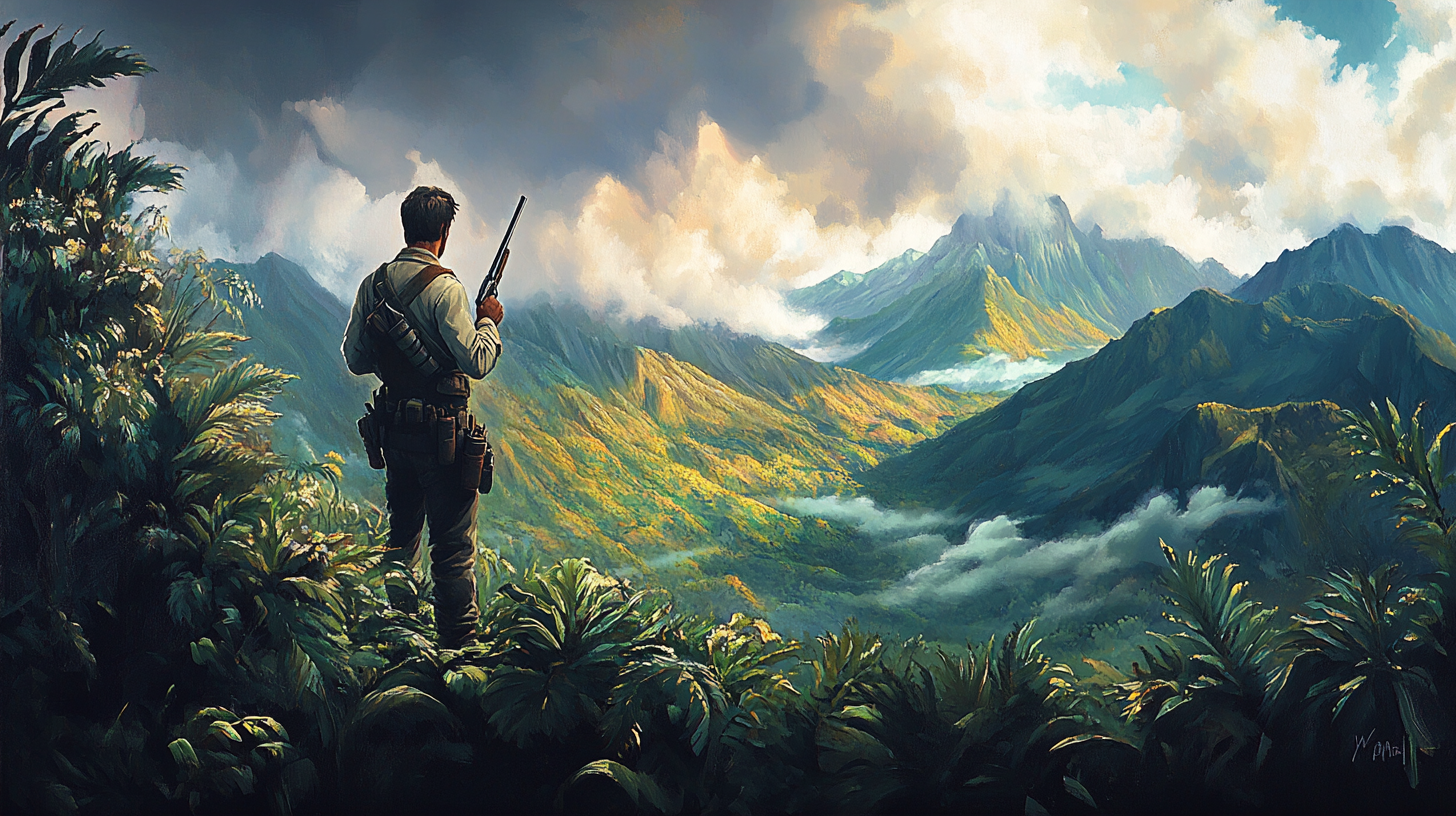
The Harsh Frontier
On the raw, untamed colony world of São Paulo, survival isn't a given—it's something a man earns every day with his own hands. The planet is rough, humid, and filled with terrain that punishes weakness. It's the kind of place where only the strong, the stubborn, and the self-reliant last long. This is the world of "Hunter's Run," and it is here that we meet Ramón Espejo—a man with no use for comfort, no patience for weakness, and no interest in bowing to anyone else's rules.
Ramón is a prospector, a loner by nature, shaped more by stone and sun than by society. He's not looking for company or applause. He wants what every man on the frontier wants—freedom, a piece of ground to call his own, and the chance to carve out a better life with sweat and courage. Life has knocked him around, but it hasn't bent him. That refusal to kneel is what defines him. He is not noble in the modern sense, but he has a code. And on São Paulo, a man's code is all he has when the jungle closes in, and the sky offers no mercy.
A Line Crossed
Ramón Espejo does not go looking for trouble. But trouble finds men like him. He speaks plainly, works hard, and refuses to be humiliated. Early in "Hunter's Run," he gets into a drunken fight outside a bar. It turns deadly. Not because Ramón planned it, but because years of frustration and disrespect came to a head. He is not a violent man by nature. But he is a man who won't back down when pushed.
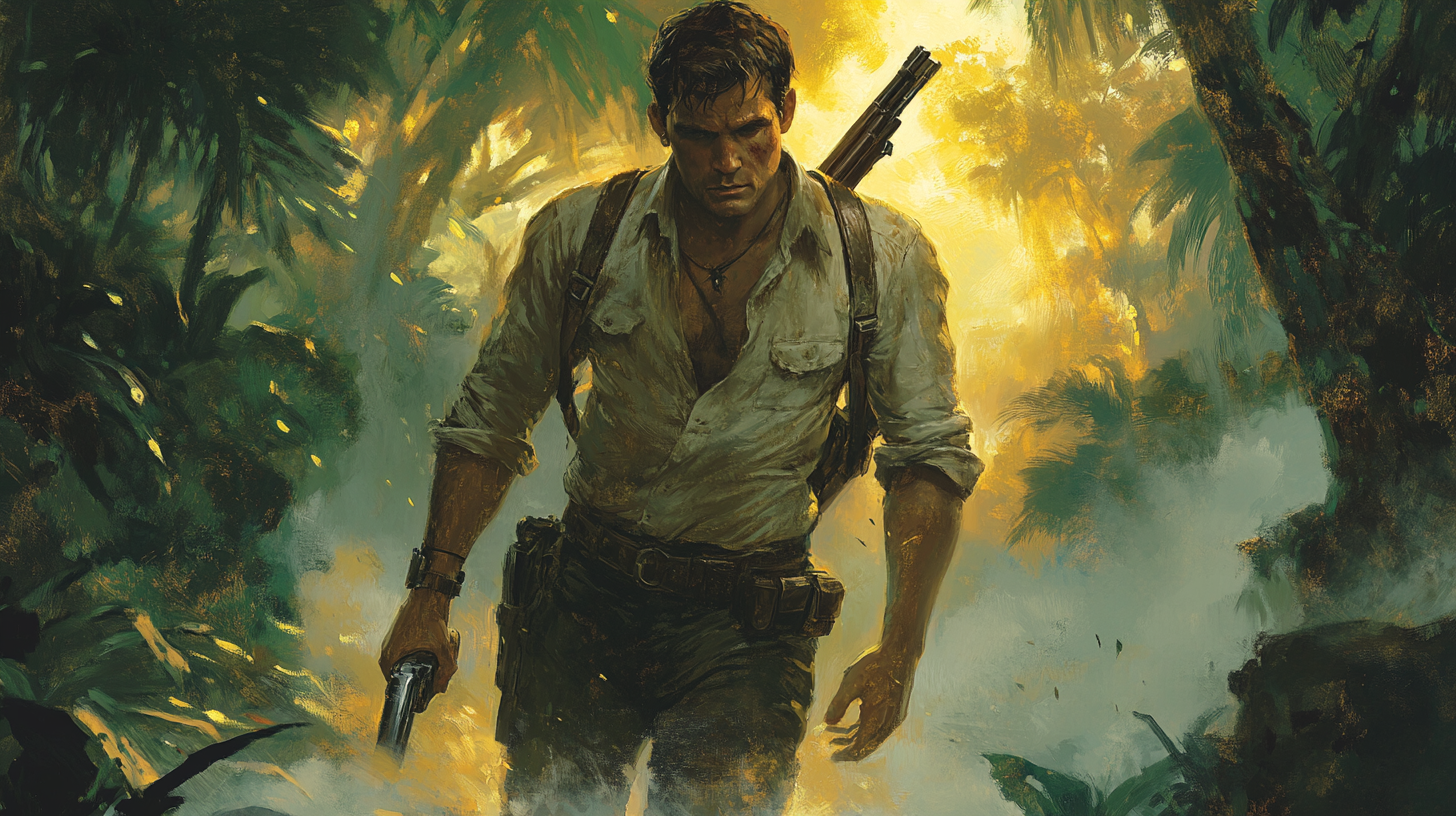
The death that follows is not senseless. It is the result of a man standing up for himself in a world that has never given him a fair shake. Ramón does not beg. He does not wait for judgment. When the authorities come looking, he heads for the hills. It is not a flight from guilt. It is a return to the one place where a man like him still belongs—the wilderness.
Ramón does not see the jungle as an escape. He sees it as a proving ground. No one will shield him out there. No one will define him. For the first time in a long time, he is free. Not free from danger, but free from men who never understood him. And it is in that freedom that Ramón begins the hardest journey of all—not just one of survival, but one that will force him to confront who he really is.
The Alien Mirror
Ramón Espejo escapes the reach of human society only to discover that the wilderness holds secrets far stranger than he imagined. Deep in the uncharted wild, he stumbles upon something hidden—something alien. These are not the little green men of old pulp stories. These beings are cold, precise, and far beyond human understanding. And they are watching him.
What begins as a fight for survival becomes something much more unsettling. The aliens do not want to kill Ramón. They want to study him. They want to use him. And through them, Ramón discovers the most terrifying truth of all. The man being hunted is not just him. It is another version of him—an exact copy grown from his own flesh, carrying all his memories, his rage, and his fears.
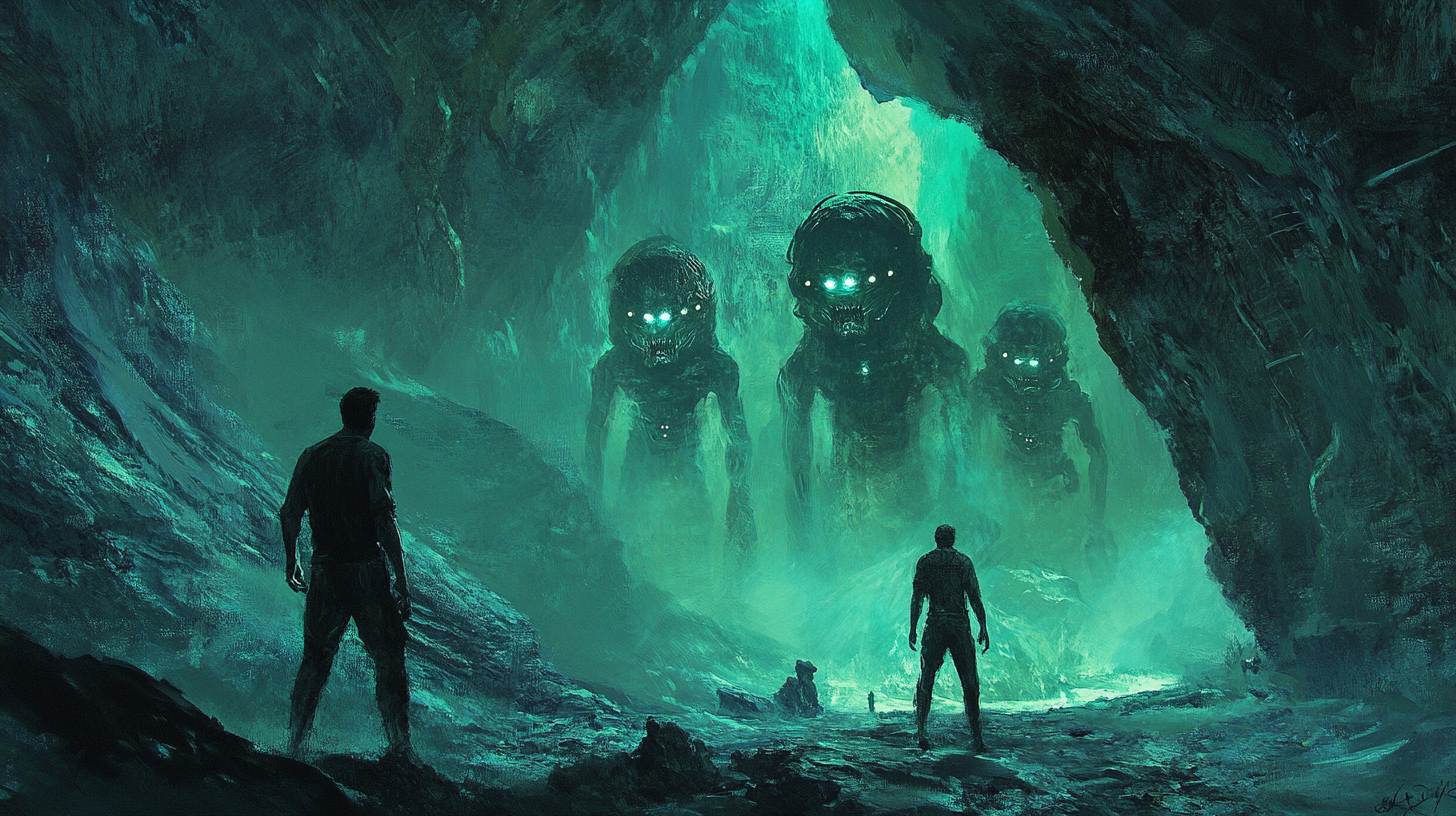
This is not a science fiction metaphor. This is literal. Ramón Espejo must face himself. Not in some abstract, poetic sense, but in a physical and immediate one. The man he was—the man who fought, ran, and bristled at every authority—now has to reckon with what that man has become.
The alien encounter strips away every distraction. There is no civilization to blame. No injustice to rage against. Only two men—identical in form and memory—trying to decide which one deserves to live. It is a pure moment. A hard moment. And it turns the story from a chase into a crucible. Ramón cannot go forward until he has answered the one question no man wants to face. If you met yourself in the wild, would you be proud of what you saw?
The mirror the aliens hold up is not made of glass. It is made of flesh, memory, and consequence. And it does not lie.
Choosing the Higher Road
Ramón Espejo could have stayed the same. He could have fought the copy of himself with the same stubborn pride that had carried him this far. But something changes. The fight with the clone is not just a struggle for survival. It is a turning point. Ramón realizes he does not want to be the man he was. Not anymore.
In "Hunter's Run," the clone that Ramón confronts is smarter, calmer, and more thoughtful. It is not weaker. It is better. It learns. It adapts. And it begins to see that the real enemy is not the aliens or the wilderness—it is the hard shell Ramón built around himself to survive. That shell protected him. But it also blinded him. When the time comes, the clone does not just defeat the original. It becomes him. And in doing so, it chooses something more difficult than survival. It chooses purpose.
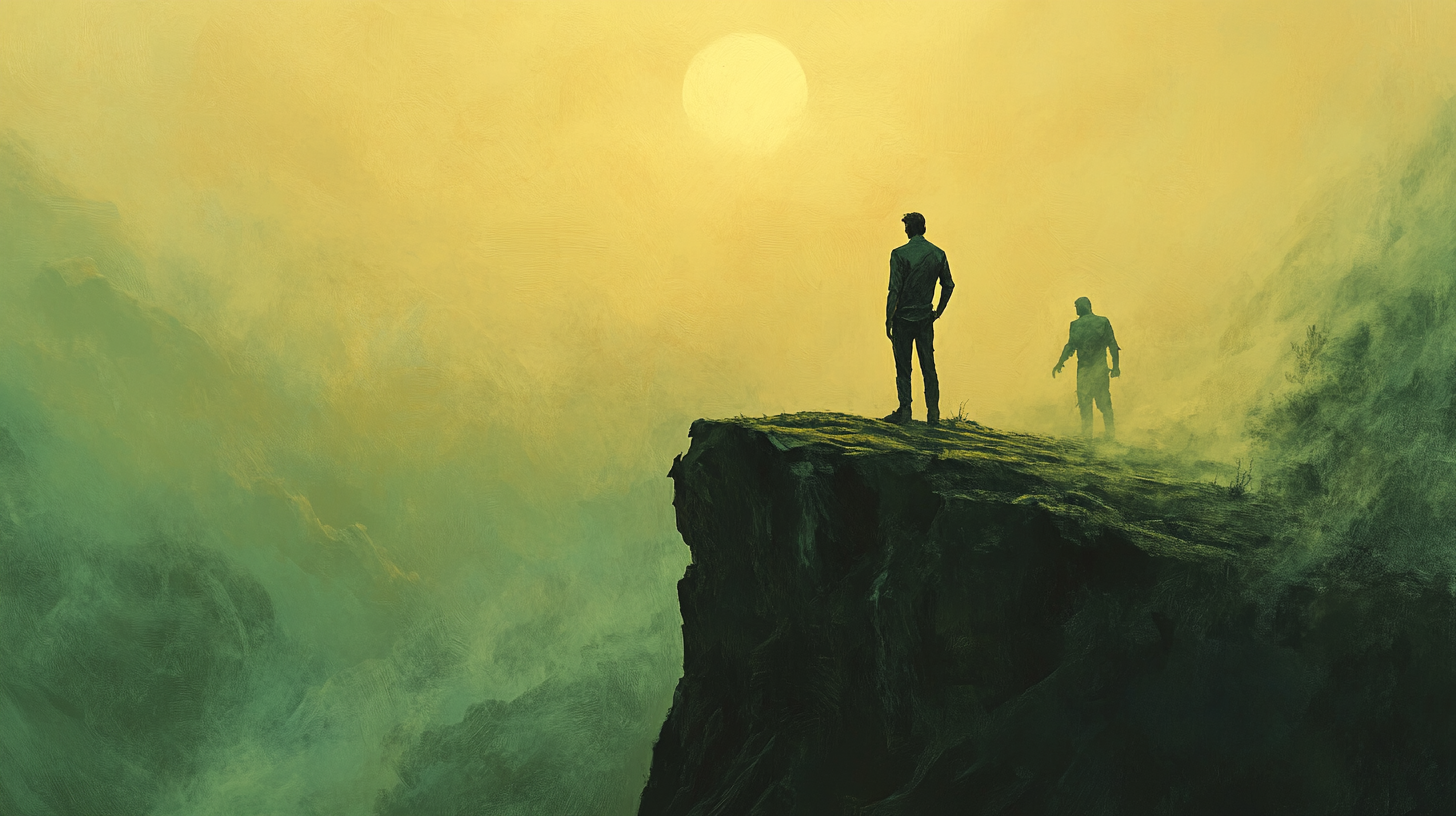
This is where the story earns its place among the greats in science fiction. It does not just show a man running from trouble or wrestling with the wild. It shows a man transforming. Through pain, loss, and a brutal reckoning, Ramón gains something more valuable than safety or revenge. He gains clarity.
He walks away not with bitterness, but with resolve. He chooses to act with understanding instead of instinct. He chooses to face the aliens not as prey or pawn, but as a man with dignity. He does not let others define him. He defines himself.
That is what separates a survivor from a master. The survivor escapes. The master overcomes. And Ramón Espejo—flawed, hardened, but reborn—becomes a man who is finally free to choose his own path.
Legacy of the Rugged Man
Ramón Espejo is not a perfect man. He is not polished. He does not quote philosophers or lead armies. But he lives by a code. He works. He endures. He takes the blows that life gives him and still finds the will to stand. In "Hunter's Run," he begins as a man on the edge of society and ends as a man who has found himself—not through comfort or affirmation, but through fire.
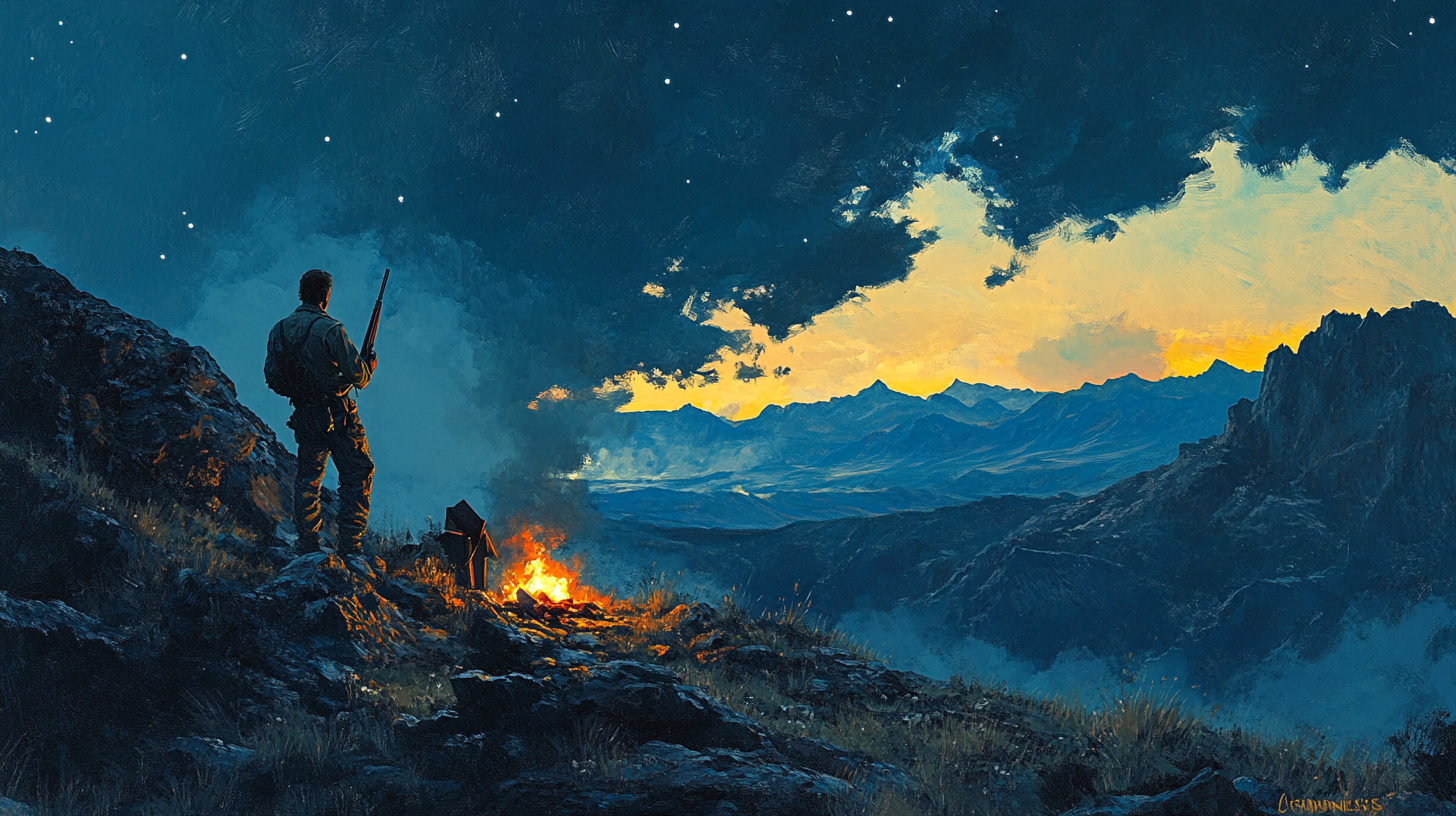
Science fiction often shows us the future. But sometimes, its greatest gift is reminding us of timeless truths. Strength forged in solitude. Character revealed under pressure. The ability to face oneself and choose to be better. These are not traits of a distant utopia. They are the bedrock of real manhood.
In a genre crowded with spectacle, Ramón's story reminds us that the toughest journey is the one within. And the man who masters himself, masters everything.

